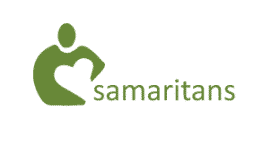Our weekly round-up of how the pandemic is impacting nonprofit management, fundraising, and recruitment – and what your organization can do in response…
2 THINGS YOU NEED TO KNOW NOW
1. Boards are critical assets in the next phase of planning
You have already asked your Board to come to the table in ways they may never have before as you created COVID-19 contingency plans. Now they are more deeply engaged, and you have a Board audience ready to look ahead. The good news: board members want to help! Begin by asking them to contribute in the following ways:
Tap their experience
Inevitably, most organizations will have to change how they operate for the next six to twelve months, and maybe even permanently. Many of your board members are developing similar plans for their own organizations. This makes them a tremendous resource as you map various scenarios for the coming months and years. How will your constituencies interact with your organization differently? How will your services change? What will the financial impact of those changes be? And how will you staff for this new reality? Each board committee has a role to play in developing and planning for your organization’s future. Take advantage of their seasoned experience and expertise. This will also make them better donors – they will have a more vested stake in your organization.
Beyond the ubiquitous “thank you” call, deepen their engagement with donors
- Consider inviting a board member or two to join your CEO during Zoom chats with donors. They can report on the short and longer-term plans you are putting in place to serve and protect your constituents and staff members. Their presence—and their voices—will lend depth, credibility and accountability that donors will value. To ensure effective messaging, be sure to script your board members and consider role playing in advance.
- Similarly, ask appropriate board members to partner with MGOs or CEOs on calls or virtual meetings with individual or institutional major donors. Board members can speak directly about your organization’s stability, flexibility and future planning, and donors will value the access and be reassured by their active engagement. Again, be sure you script and rehearse beforehand.
These are practices that could have legs long after the pandemic recedes.
2. Is now the time to conduct a wealth/propensity screen of your database?
Many organizations are receiving a groundswell of support from new donors and/or from donors who flew under the radar for many years. Stories of $50,000 checks arriving in the mail from an annual $50 donor or significant new donor response to Giving Tuesday initiatives are widespread. But what do you know about these donors and how will you keep them engaged? If you have the time and capacity, consider devoting some resources to refreshing your donor analytics. Keep in mind though, the data alone is not all you need. You’ll need to be able to qualify your findings and record the data in a meaningful way in your own CRM. This up-to-date data will be crucial to your readiness to reenter a campaign or launch a new initiative post-pandemic.
Nonprofit Spotlight
Highlighting the tenacity and creativity of nonprofits in unprecedented times…
 “Individual notes are just sound, but when played together, they form harmony.” Check out this impressive (and musical) Annual Fund appeal from Walnut Hill School for the Arts. Short and sweet, the video sets just the right tone – literally!
“Individual notes are just sound, but when played together, they form harmony.” Check out this impressive (and musical) Annual Fund appeal from Walnut Hill School for the Arts. Short and sweet, the video sets just the right tone – literally!
 Samaritans, Inc., a suicide prevention nonprofit in Boston, knows the people they serve deserve their full attention and energy, especially in overwhelming and chaotic times like these. To ensure safety, they have temporarily changed their programs in response to the pandemic.
Samaritans, Inc., a suicide prevention nonprofit in Boston, knows the people they serve deserve their full attention and energy, especially in overwhelming and chaotic times like these. To ensure safety, they have temporarily changed their programs in response to the pandemic.
- 24/7 Crisis Services – Samaritans’ Helpline remains open 24/7 for calls and texts at 877-870-4673, as their incredible Helpline volunteers are working remotely to answer calls and texts.
- Grief Support Services – Samaritans typically offers peer support groups (called SafePlace meetings) to people who are bereaved by a loss to suicide. In the meantime, SafePlace meetings are being held virtually via Zoom.
- Community Education & Outreach – While Samaritans’ in-person suicide prevention workshops are suspended, their team has instead been delivering webinars twice a week and open to the public. Workshops cover risk factors and warning signs for suicide, and how to help someone who may be struggling.
Samaritans’ adaptability, and unwavering commitment to the vulnerable people they serve, has meant continued and effective mission delivery.



